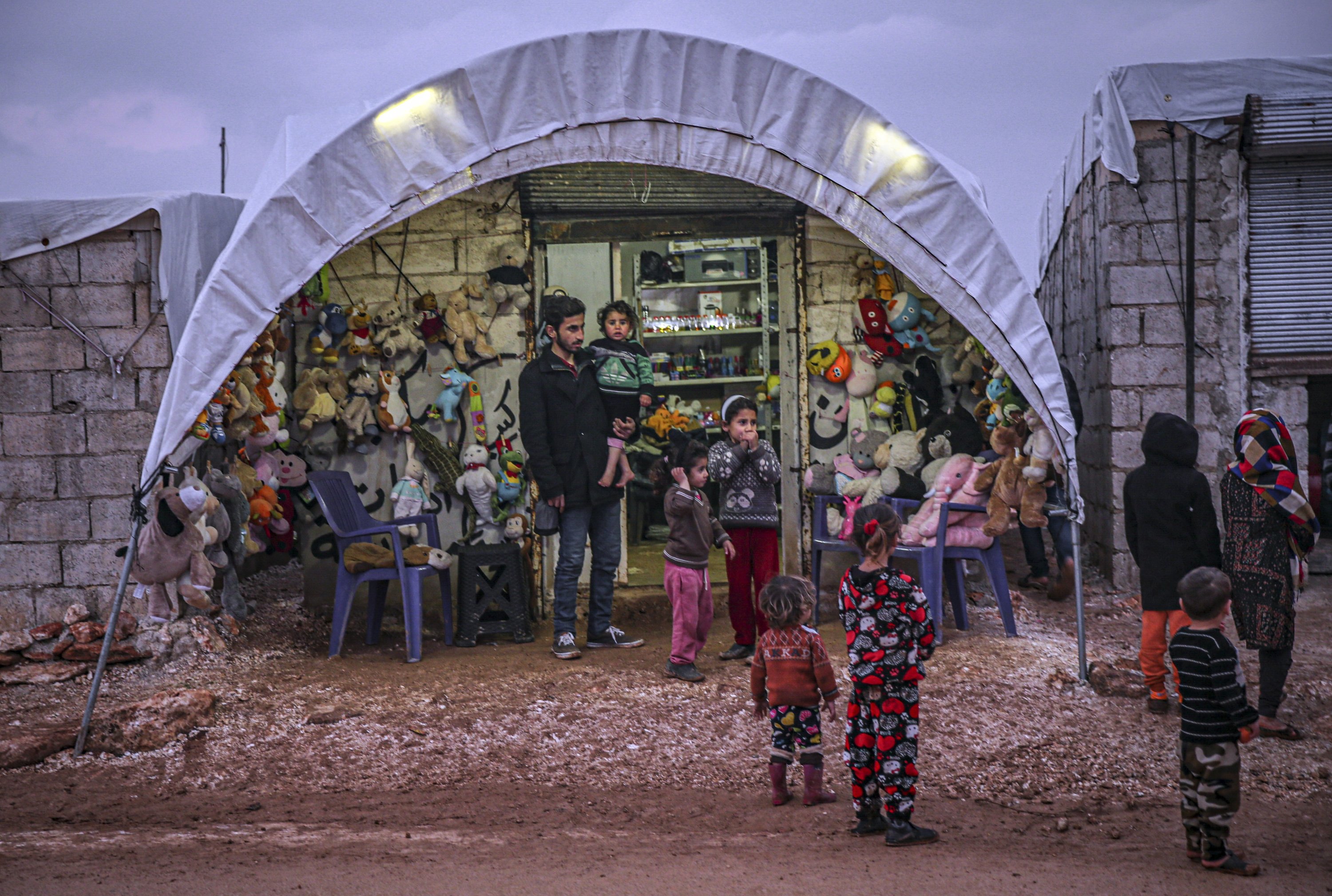© Turkuvaz Haberleşme ve Yayıncılık 2025
A toy shop in a tent camp in Syria’s northwestern Idlib province has colorful playthings and plush toys on display that children in the region can only dream of because their parents cannot afford to buy anything except bread amid the ongoing civil war and a collapsing economy.
Muhammed Quteish, a Syrian who was displaced by the Bashar Assad regime’s attacks two years ago, has opened a toy shop in the camp he sought refuge in.
Quteish told Anadolu Agency (AA) that he opened the shop by taking out a loan.
“The toys shop makes me feel relaxed. It distracts me from the dust and mud. Even if only shortly, it makes me forget about the pains that I lived through,” he said, adding that even toys are not enough to ease the sufferings of displaced children.
Ahmed Khatib, 13, who lives in one of the makeshift tents, said his family does not have the means to buy toys and that they can only buy bread when they have money.
Khatib, like the other children, said that he would like to have toys and especially a bicycle.
Adnan Muhammed, a 10-year old who wants a football, said, “I wish not only me, but all children in the tents would have toys.”

Conditions in the tent camps are harsh as the camps are frequently flooded due to rains, and it is impossible to stay warm during the winter. Last month, heavy rains flooded 110 tents belonging to displaced civilians, affecting 50,000 people. Another danger is that civilians risk their lives and health by burning old clothes, nylon and plastic to get warm, leading to various respiratory diseases such as asthma and bronchitis.
Meanwhile Turkish aid organizations have stepped up their efforts in the Idlib region, sending vital necessities including heating material and food.
Five trucks of flour as well as one truck of potatoes were sent to Syria from Turkey’s central Kayseri province. As part of the campaign of the Presidency of Religious Affairs (Diyanet) and the Turkiye Diyanet Foundation (TDV), aid was gathered from philanthropists and send to the needy in Syria. The provincial mufti, Şahin Güven, speaking at the ceremony, said they send aid material every month.
On the other hand, another aid organization from southern Adana and philanthropists sent 10 trucks of food, water and heating supplies to tent camps in Idlib.
Almost a million people have fled the Assad regime’s offensive on Idlib – the last opposition bastion – since December 2019 with many seeking refuge in overcrowded tent camps near the Turkish border. A fragile truce was brokered between Moscow and Ankara in March 2020 in response to the months of fighting with the Russia-backed regime, yet frequent attacks on civilians continue, hindering most from returning to their homes and forcing them to seek shelter in makeshift camps.
Almost a decade into the war, Syria has grappled with an economic crisis compounded by Western sanctions, a coronavirus lockdown and a rapid devaluation of the local currency.
The war has devastated the country's economy since 2011, plunging 80% of its people into poverty, according to the United Nations. Despite relative quiet on the country's remaining battlefields, 2020 only saw the situation worsen. Much of the economy in regime-held areas was shuttered last March to prevent the spread of the coronavirus pandemic.
In the past year, people in regime-held areas have faced fuel crises, a plummeting Syrian pound on the black market and steep price hikes. Damascus has blamed Western sanctions for its struggling economy.
Last summer, local authorities in Idlib began replacing the plummeting Syrian pound with the Turkish lira in an attempt to shield their region from economic collapse.
